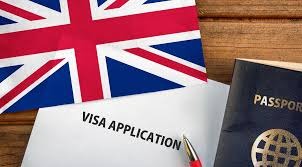Applying for a UK VISA APPLICATION can be an overwhelming process, especially for first-time applicants. Whether you’re planning a vacation, studying, working, or joining family in the UK, understanding the visa process is crucial. The UK government has strict regulations, and meeting all the necessary requirements is key to securing approval. This guide provides a detailed breakdown of the visa types, application process, required documents, fees, and useful tips to improve your chances of success.
Types of UK Visas
The UK offers various visa types depending on the purpose of travel. Below are the main categories:
- Tourist Visa (Standard Visitor Visa)
This visa allows individuals to visit the UK for leisure, medical treatment, or short business trips. It is usually valid for six months, with some exceptions for frequent travelers who may be granted longer validity.
- Student Visa (Tier 4 Visa)
Designed for international students, this visa is required for those enrolling in a UK educational institution. Applicants must have an offer from a recognized institution and show proof of sufficient funds.
- Work Visas
The UK offers multiple work visa options, such as:
- Skilled Worker Visa: For professionals with job offers in high-demand fields.
- Health and Care Worker Visa: For healthcare professionals working in the UK’s NHS or adult social care sector.
- Global Talent Visa: For individuals with exceptional talent in science, arts, or technology.
- Temporary Work Visa: For short-term employment, including seasonal and charity work.
- Family Visa
Those who have a spouse, partner, or close family member residing in the UK can apply for a family visa. This category also covers dependent children and adult relatives requiring long-term care.
- Business and Investor Visas
For entrepreneurs and investors, options include:
- Innovator Visa: For those setting up an innovative business in the UK.
- Start-up Visa: For individuals starting their first business.
- Investor Visa: For high-net-worth individuals investing in UK businesses.
UK Visa Application Process
The UK VISA APPLICATION process involves several steps, which must be followed carefully to avoid delays or rejection.
- Determine the Visa Type
Before starting, determine which visa suits your purpose. The UK government’s official website provides a visa-checking tool to help applicants choose the right category.
- Prepare the Required Documents
Each visa type requires specific documents. The common requirements include:
- A valid passport with at least one blank page
- Completed visa application form
- Proof of financial stability (bank statements, payslips)
- Travel itinerary and accommodation details
- Letter of invitation (if applicable)
- Tuberculosis test results (for certain countries)
- Proof of English language proficiency (for some visa categories)
- Complete the Online Application Form
Applicants must fill out the online visa application form on the UK Visas and Immigration (UKVI) website. Ensure all information is accurate and matches the supporting documents.
- Pay the Visa Fee
Visa fees vary depending on the type and duration of stay. Payments can be made online through a secure payment gateway. UK ETA ONLINE
- Book a Biometric Appointment
After submitting the application, applicants must schedule a biometric appointment at a visa application center. This involves fingerprint scanning and a digital photograph.
- Submit Supporting Documents
Applicants can either upload documents online or submit them at the visa application center. Some centers offer document scanning services for an additional fee.
- Attend an Interview (if required)
Certain visa categories may require an interview with a UKVI officer to assess the applicant’s intent and eligibility.
- Wait for Processing and Decision
Processing times vary by visa type and applicant’s country. Standard processing takes around three weeks, while priority services offer faster decisions for an additional fee.
Common Reasons for Visa Rejection
Despite following the UK VISA APPLICATION process carefully, some applications get rejected. Common reasons include:
- Incomplete or Incorrect Application
Errors in the application form or missing information can lead to rejection.
- Insufficient Financial Proof
Applicants must prove they have enough funds to support their stay in the UK. Inconsistent or insufficient bank statements often result in denial.
- Failure to Meet Eligibility Criteria
Every visa has specific requirements. Not meeting the eligibility conditions, such as the required English proficiency or work experience, can lead to rejection.
- Lack of Genuine Intent
Applicants must provide strong evidence of their purpose, especially for visitor and student visas. Weak documentation can raise doubts about the applicant’s intent.
- Overstaying Previous Visa
A history of overstaying in the UK or other countries can negatively impact the chances of approval.
Tips for a Successful UK Visa Application
To improve your chances of approval, follow these best practices:
- Apply Early
Start the UK VISA APPLICATION process at least three months before your intended travel date to account for any delays.
- Ensure Accuracy in Your Application
Double-check all information before submission to prevent discrepancies that could lead to rejection.
- Provide Strong Supporting Documents
Submit clear and well-organized documents to strengthen your case. A cover letter explaining your travel purpose can also be beneficial.
- Demonstrate Financial Stability
Maintain a stable financial record and provide proof of consistent income sources. Avoid last-minute large deposits, as they may raise suspicion.
- Be Honest and Transparent
Provide truthful answers and avoid exaggerations. Any false information can lead to a visa ban.
- Prepare for the Interview (if applicable)
If an interview is required, practice answering questions confidently and clearly. Be ready to explain your travel plans, funding sources, and return intentions.
Conclusion
Applying for a UK VISA APPLICATION requires careful planning and attention to detail. Understanding the visa types, following the correct process, and preparing strong documentation can significantly increase the chances of approval. By avoiding common mistakes and ensuring transparency, applicants can navigate the process smoothly and fulfill their travel, study, or work aspirations in the UK.
